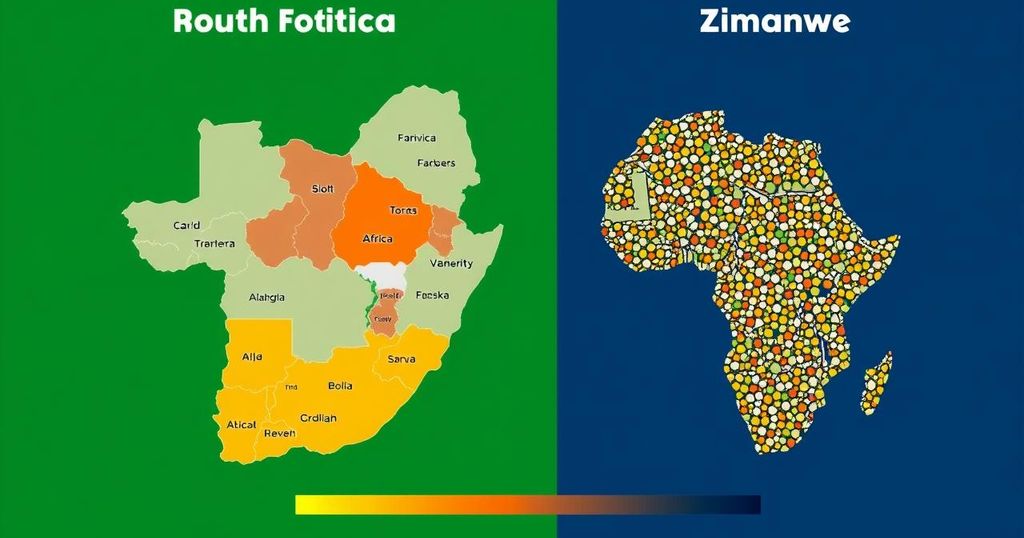In 2023, South Africa’s food security crisis is highlighted by a report from Stellenbosch University, revealing that 25% of the poorest households experience child hunger. The food security index plummeted to 45.3, with stunting rates closely mirroring those of Zimbabwe. Factors like inflation and the ongoing impact of COVID-19 are exacerbating the crisis, underscoring the urgent need for strategic interventions to improve nutritional access and affordability.
Recent findings from Stellenbosch University reveal that food security in South Africa has markedly declined, positioning the nation just slightly above Zimbabwe. In 2023, one in four of the poorest households reported instances of children going hungry, underscoring a critical challenge in nutritional access.
Although South Africa is considered relatively wealthy, its child stunting rate stands at 25%, a figure alarmingly close to Zimbabwe’s 23.5%. Approximately 4.7 million South Africans do not meet their basic caloric needs, revealing significant disparities in food availability. The South African Food Security Index reported a drastic decline in food security scores from 64.9 in 2019 to 45.3 last year, indicating deeper levels of food insecurity than observed at any time from 2012 to 2023. The economic ramifications from COVID-19 and the rising inflation have exacerbated the situation, forcing households to cut down on their food budgets and settle for less nutritious options. Additionally, the analysis points out disparities among provinces, with significant decreases in food security in traditionally robust regions such as Gauteng and KwaZulu-Natal, while some areas like Limpopo showed unexpected resilience.
The findings clearly indicate a worrying trend of escalating food insecurity within South Africa, mirroring circumstances found in its less affluent neighbor, Zimbabwe. With 4.7 million South Africans lacking adequate caloric intake and rising inflation impacting food affordability, immediate and effective interventions are necessary to avert further degradation of food security standards. The emphasis on enhancing nutritional value while improving affordability is paramount for fostering better health outcomes for the population.
Original Source: www.dailymaverick.co.za






